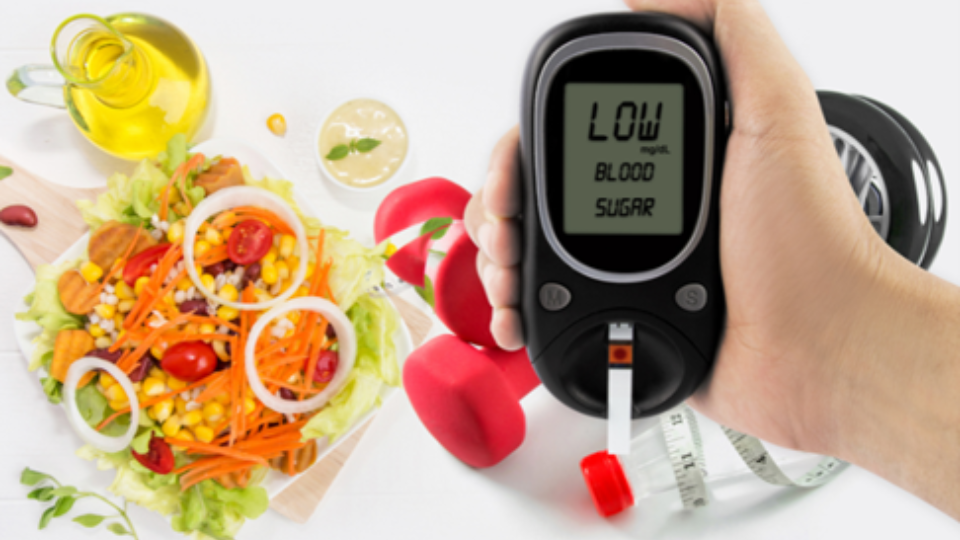"I’ve been looking for a natural and affordable solution for my skin, and this ACV toner sounds like a great…
Can Apple Cider Vinegar Help Lower Blood Sugar Levels?
- Home
- Can Apple Cider Vinegar Help Lower Blood Sugar Levels?

Can Apple Cider Vinegar Help Lower Blood Sugar Levels?
Can Apple Cider Vinegar Help Lower Blood Sugar Levels?
Controlling blood sugar levels is a growing concern for millions worldwide. With the rise of conditions like prediabetes and type 2 diabetes, people are seeking natural ways to manage their glucose levels effectively. One such remedy that has gained widespread attention is apple cider vinegar (ACV). But can apple cider vinegar help lower blood sugar levels? This post dives deep into the research, benefits, possible risks, and best practices to answer that question thoroughly.
What Is Apple Cider Vinegar?
Apple cider vinegar is made by fermenting crushed apples with yeast and bacteria. This two-step fermentation process turns the sugars into alcohol and then into acetic acid, which is the main active compound responsible for most of ACV’s purported health benefits.
ACV contains:
- Acetic acid
- Amino acids
- Enzymes
- Probiotics (especially if it’s raw and unfiltered)
How Blood Sugar Works
To understand how ACV affects blood sugar, it’s essential to grasp how blood sugar functions. When you eat carbohydrates, your body breaks them down into glucose. This glucose enters your bloodstream, prompting the pancreas to release insulin, a hormone that helps cells absorb glucose for energy.
If your body becomes resistant to insulin or doesn’t produce enough of it, blood glucose levels remain elevated. Over time, this can lead to type 2 diabetes and other health complications.

The Science Behind Apple Cider Vinegar and Blood Sugar
Several studies have explored how apple cider vinegar affects blood glucose levels, especially after meals.
1. Improved Insulin Sensitivity
A study published in Diabetes Care (2004) showed that consuming vinegar before a high-carb meal significantly improved insulin sensitivity in people with insulin resistance or type 2 diabetes. Participants who took vinegar had 25% improved insulin sensitivity compared to those who didn’t.
2. Lower Post-Meal Blood Sugar
A 2005 study showed that taking 2 tablespoons of apple cider vinegar before bedtime reduced fasting blood sugar levels by 4–6% in people with type 2 diabetes.
3. Slower Carbohydrate Digestion
Acetic acid in ACV slows down the digestion of starches, leading to a more gradual release of glucose into the bloodstream. This can prevent sudden spikes in blood sugar.
4. Glycemic Index Reduction
Some researchers believe that ACV can reduce the glycemic index (GI) of foods, which could help people manage glucose levels more effectively.
How to Use Apple Cider Vinegar for Blood Sugar Control
If you’re considering using ACV as part of your blood sugar management routine, here are some best practices to follow.
1. Dosage
- Start with 1 teaspoon (5 ml) mixed in a glass of water before meals.
- Gradually increase to 1–2 tablespoons (15–30 ml) per day, split across meals.
2. Timing
- Before meals: Helps reduce post-meal glucose spikes.
- Before bedtime: Some studies suggest this can help manage fasting blood sugar.
3. Form
- Always choose raw, unfiltered apple cider vinegar with the “mother,” which contains beneficial enzymes and probiotics.
- Avoid capsules unless recommended by a healthcare provider, as quality and content vary.
4. Dilution Is Key
Never drink apple cider vinegar undiluted—it’s acidic and can damage your teeth, throat, and stomach lining.
Who Should Be Cautious?
While ACV may offer benefits, it’s not suitable for everyone.
1. People with Kidney Issues
ACV is high in acid, which can burden the kidneys if they’re already compromised.
2. Those on Blood Sugar or Diuretic Medications
ACV may interact with medications like insulin, metformin, or diuretics, leading to hypoglycemia or low potassium levels.
3. Pregnant and Breastfeeding Women
There’s limited research on ACV’s safety during pregnancy and breastfeeding, so consult a doctor.
4. People with Acid Reflux or Ulcers
ACV can worsen symptoms in individuals with gastrointestinal issues.
Real-Life Testimonials
Many individuals report positive experiences using ACV for blood sugar control:
“After adding a tablespoon of ACV before my meals, my glucose readings dropped consistently by 10–15 points.” – Mark, prediabetic
“It’s not a cure, but using apple cider vinegar helped me avoid medication for another year.” – Maria, type 2 diabetic
However, these testimonials are anecdotal and should be balanced with scientific data and medical advice.
Myths vs. Facts About ACV and Blood Sugar
Let’s clear up some common misconceptions.
❌ Myth: ACV cures diabetes.
✅ Fact: ACV may help manage blood sugar but does not cure diabetes. It should complement—not replace—medical treatments.
❌ Myth: The more vinegar, the better.
✅ Fact: Overconsumption can cause harm. Stick to recommended doses.
❌ Myth: ACV is effective instantly.
✅ Fact: Like any natural remedy, consistent use over time brings the best results.
Complementary Strategies for Blood Sugar Management
While ACV can help, it works best as part of a holistic lifestyle.
✅ Healthy Diet
- Focus on low-glycemic foods like leafy greens, legumes, whole grains.
- Avoid refined carbs and sugars.
✅ Regular Exercise
- Physical activity improves insulin sensitivity.
- Aim for at least 30 minutes of moderate exercise 5 days a week.
✅ Sleep and Stress Management
- Poor sleep and chronic stress can raise blood sugar.
- Practice relaxation techniques like meditation and deep breathing.
✅ Regular Monitoring
- Use a glucometer or continuous glucose monitor (CGM) to track how ACV and other habits affect your blood sugar.
How to Incorporate ACV Into Your Diet
Here are some tasty and practical ways to consume ACV:
- Salad dressings: Mix with olive oil, mustard, and herbs.
- Diluted drink: 1 tbsp ACV + 1 cup water + lemon juice + a pinch of cinnamon.
- Marinades: Use as a tenderizer for chicken or tofu.
- Pickling: Homemade pickles using ACV as the base.
Avoid adding ACV to overly sugary beverages or combining it with baking soda (a common online myth with no real benefit).
Final Thoughts: Should You Try Apple Cider Vinegar?
So, can apple cider vinegar help lower blood sugar levels? The research indicates that yes, it may offer modest but meaningful benefits, especially in:
- Improving insulin sensitivity
- Lowering post-meal glucose spikes
- Supporting better metabolic health
However, it’s not a standalone solution. Consult your healthcare provider before adding it to your routine—especially if you’re on medication or have pre-existing conditions.
When used responsibly and in combination with healthy habits, ACV can be a natural and affordable tool in your blood sugar management toolkit.
FAQs
Q: How long does it take for ACV to lower blood sugar?
You may see short-term effects within a few hours, especially in post-meal blood sugar. Long-term improvements require consistent use over weeks or months.
Q: Can I take ACV on an empty stomach?
Yes, but always dilute it in water to avoid stomach irritation.
Q: Is ACV better than white vinegar for blood sugar?
Studies specifically focus on apple cider vinegar, but the active compound (acetic acid) is also in white vinegar. However, ACV contains more nutrients and probiotics.
Q: Can I use ACV if I have type 1 diabetes?
People with type 1 diabetes should consult a doctor. ACV might interact with insulin levels differently than in type 2 diabetes.
Summary Table
| Benefit | Backed by Science? | Notes |
|---|---|---|
| Lowers post-meal blood sugar | ✅ | Best taken before meals |
| Improves insulin sensitivity | ✅ | Especially in prediabetics |
| Helps with weight loss | ✅ | Indirect benefit |
| Reduces fasting glucose | ⚠️ | Mixed results |
| Cures diabetes | ❌ | Myth – no natural cure |
If you’re looking for a natural and scientifically backed way to support healthy blood sugar levels, apple cider vinegar is worth considering. Just be sure to use it responsibly and as part of a bigger wellness picture.
Liked this post? Share it with someone managing their blood sugar and let us know in the comments if you’ve tried apple cider vinegar!
- Share
